Eczema (Atopic Dermatitis)
Listen to Dr. Greenberg Talk About Eczema on a Podcast
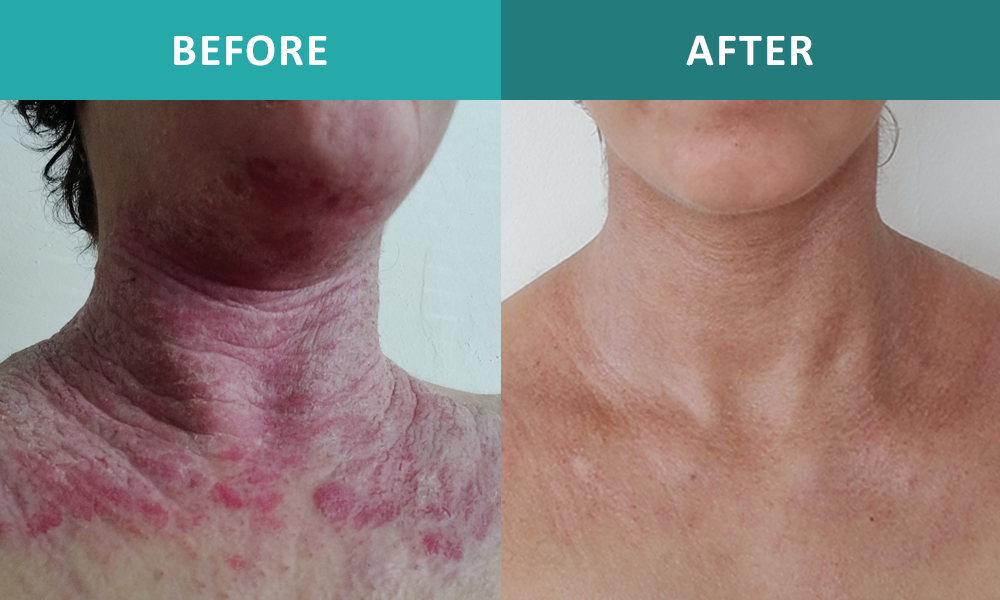
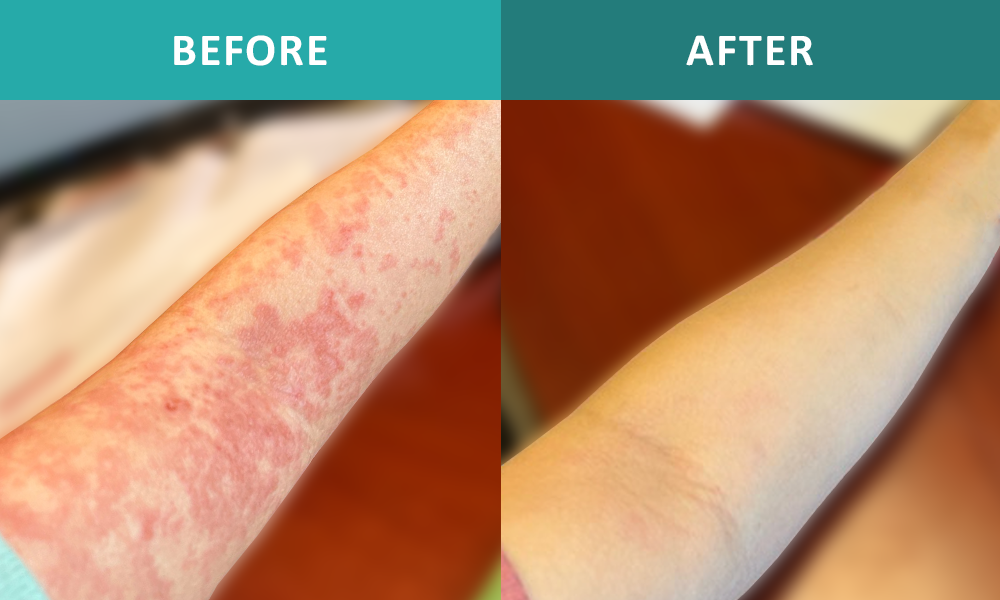
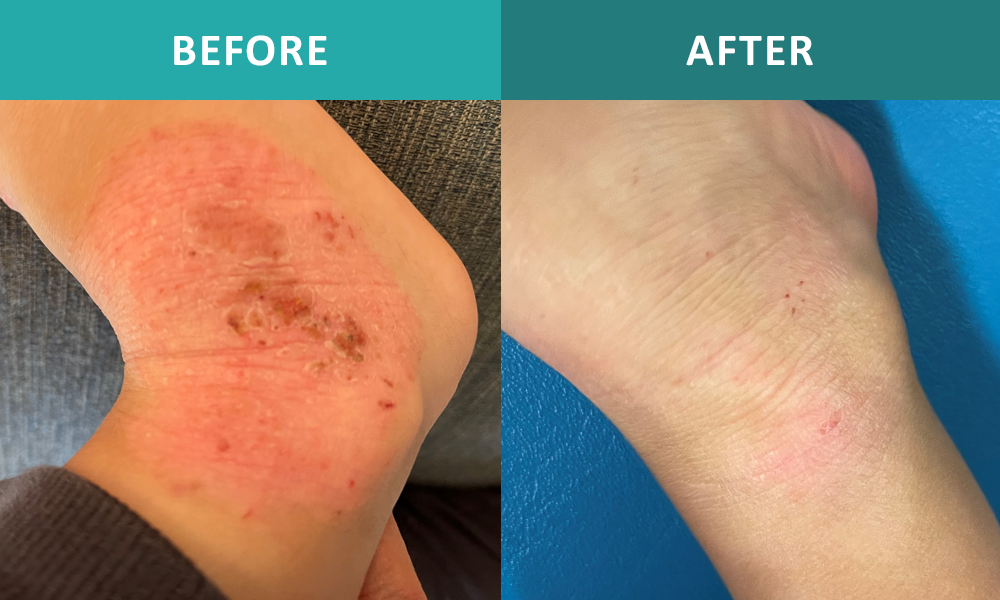
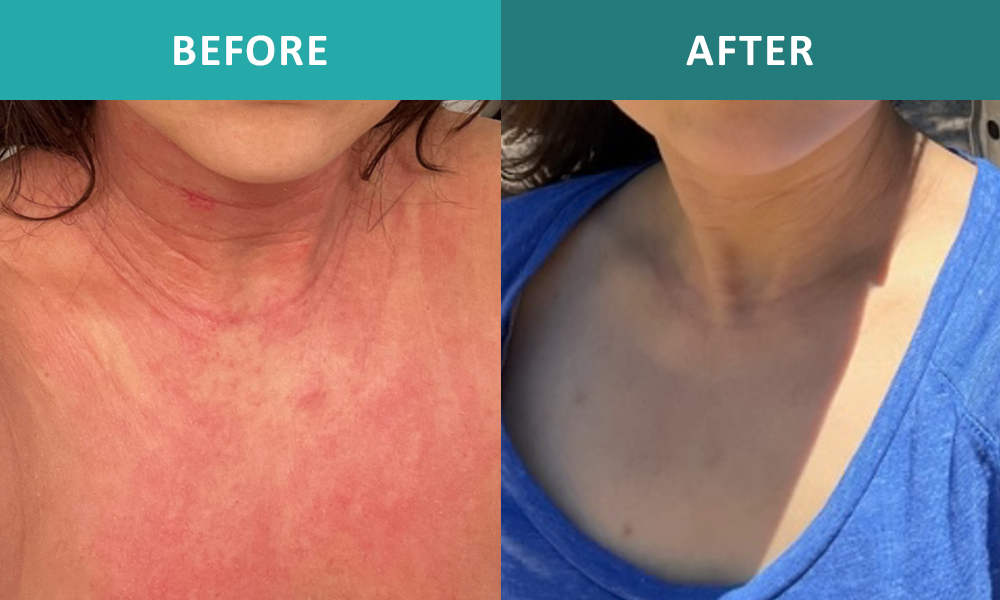
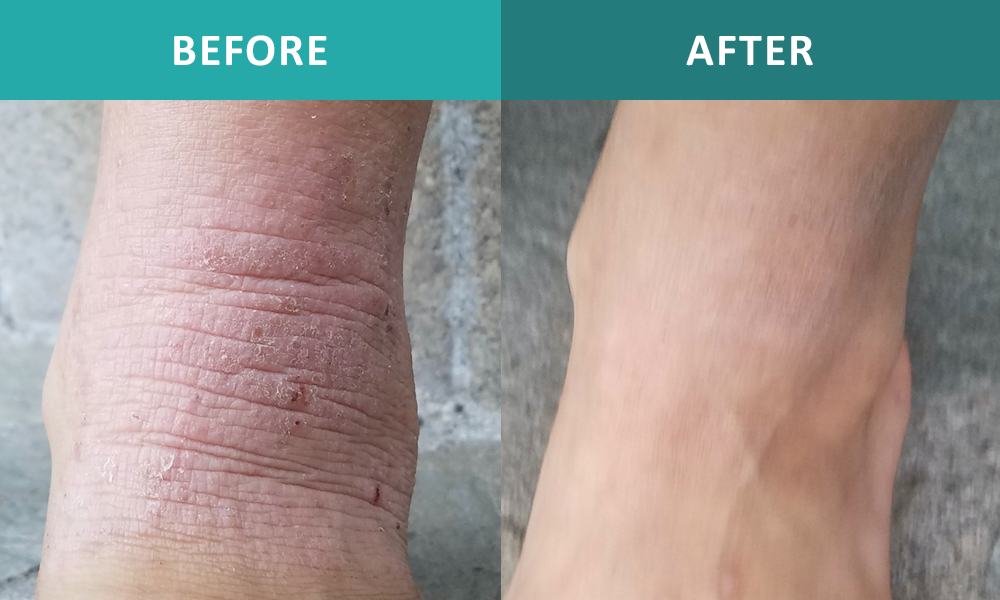
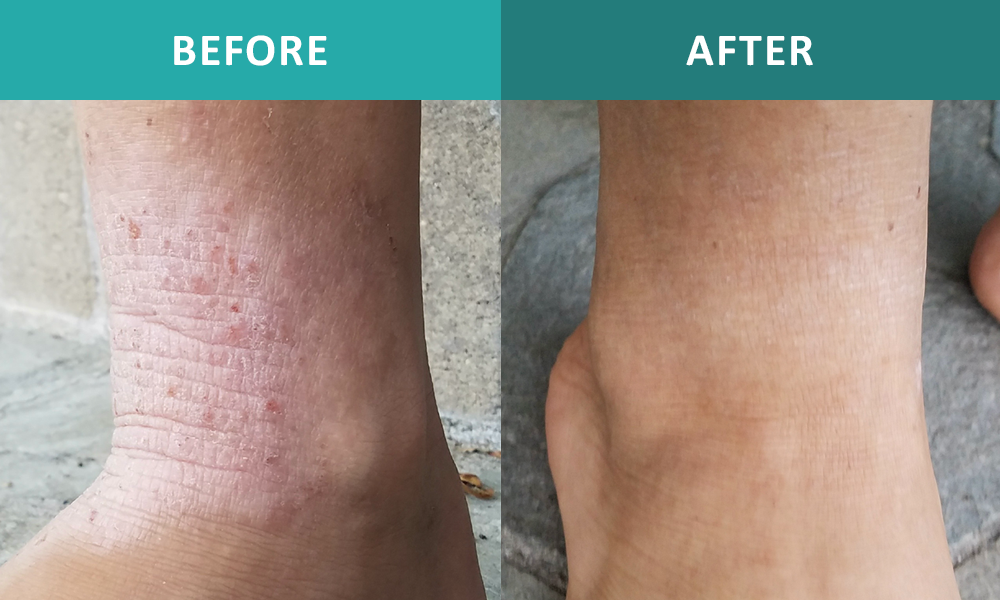
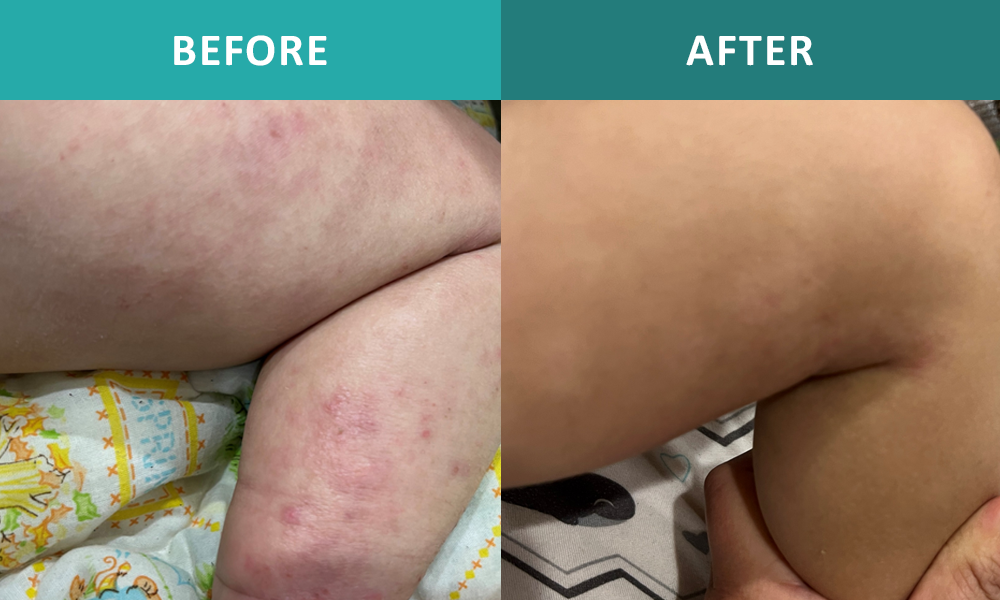
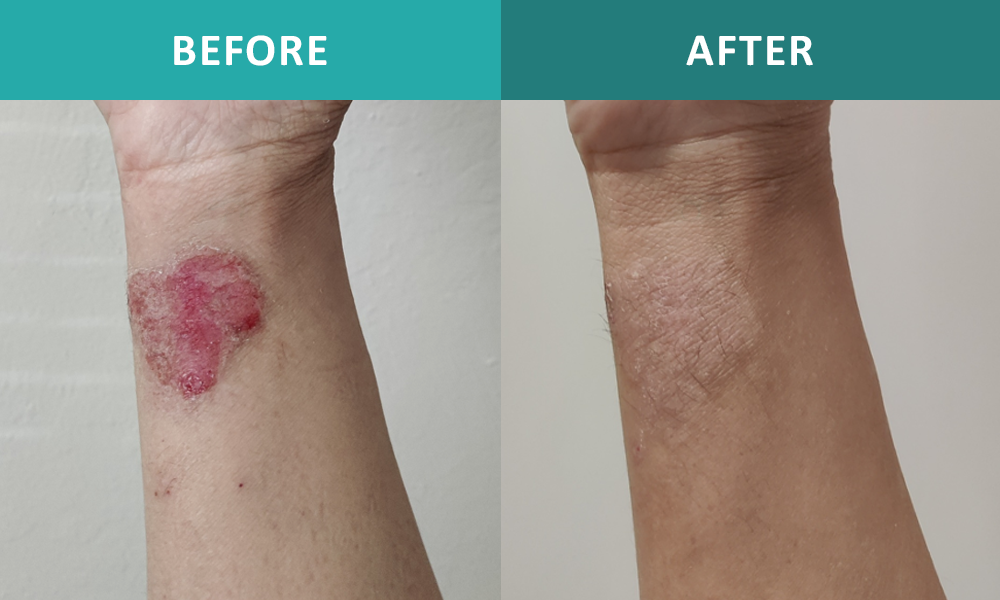
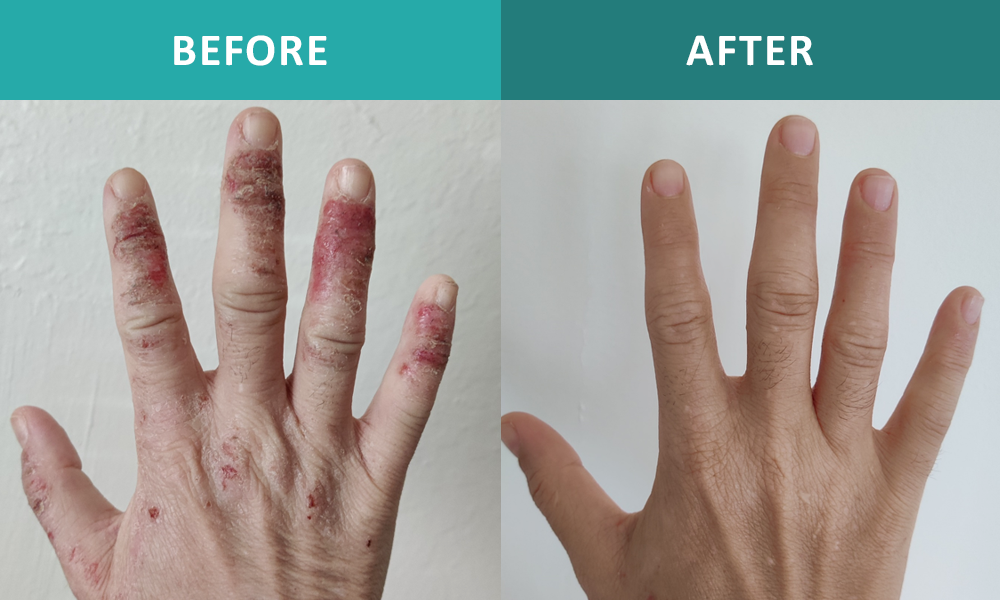
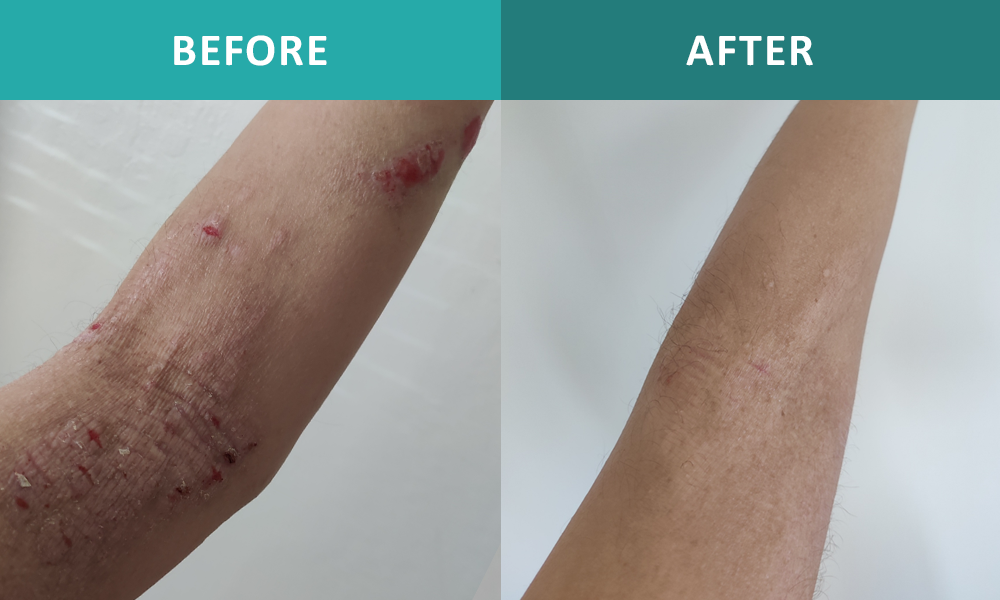
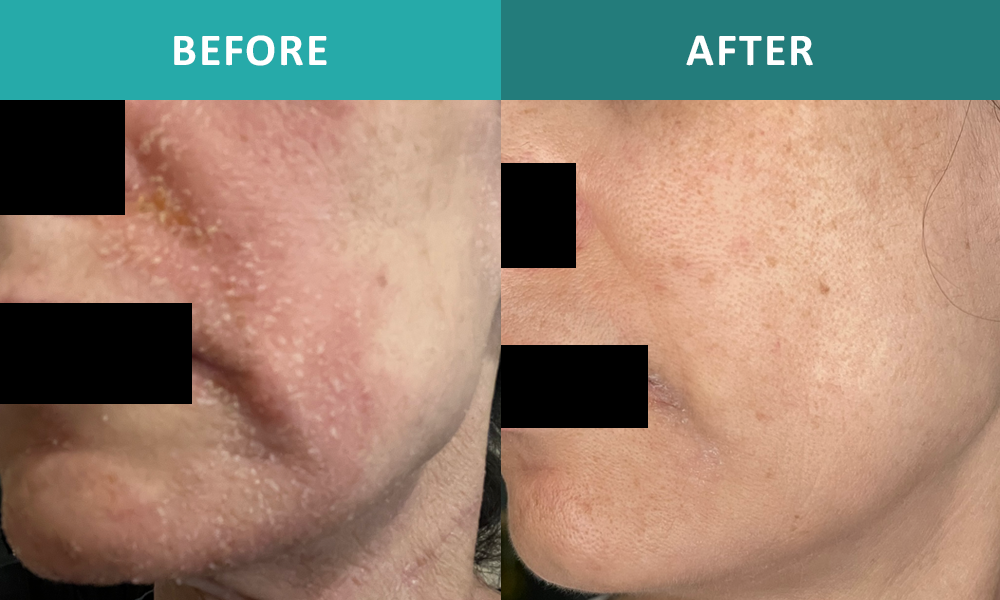
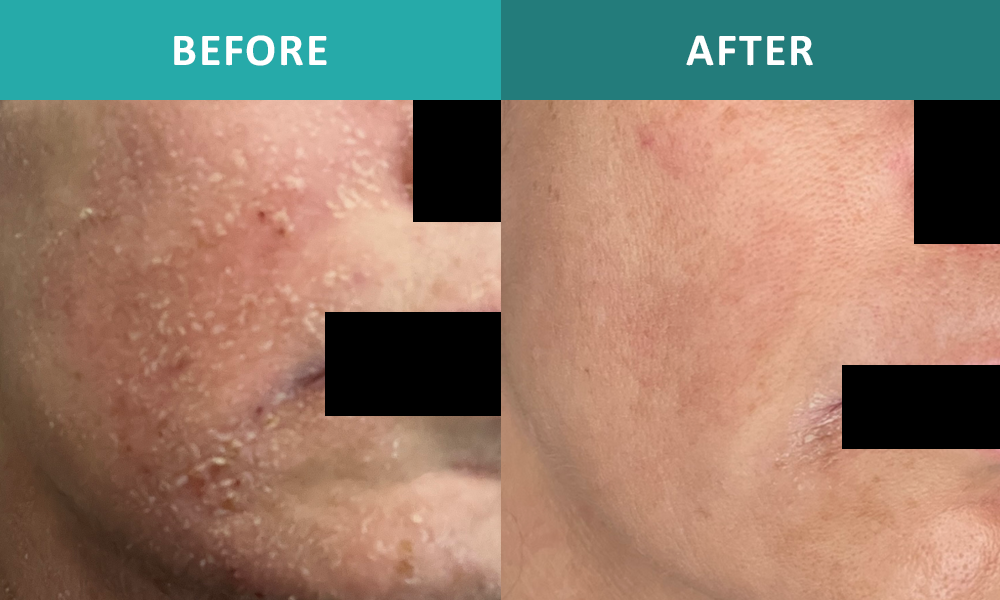
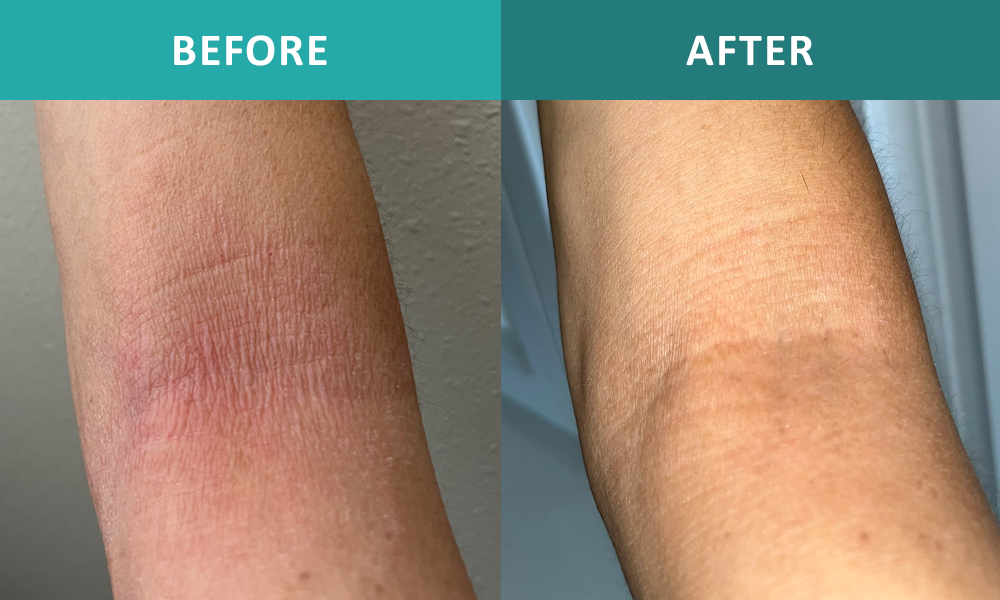
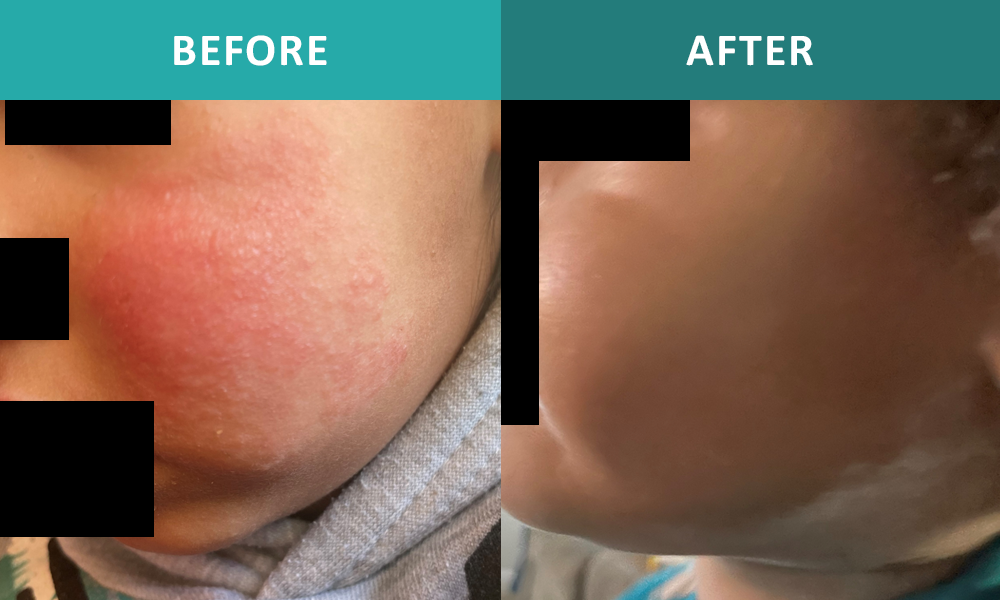
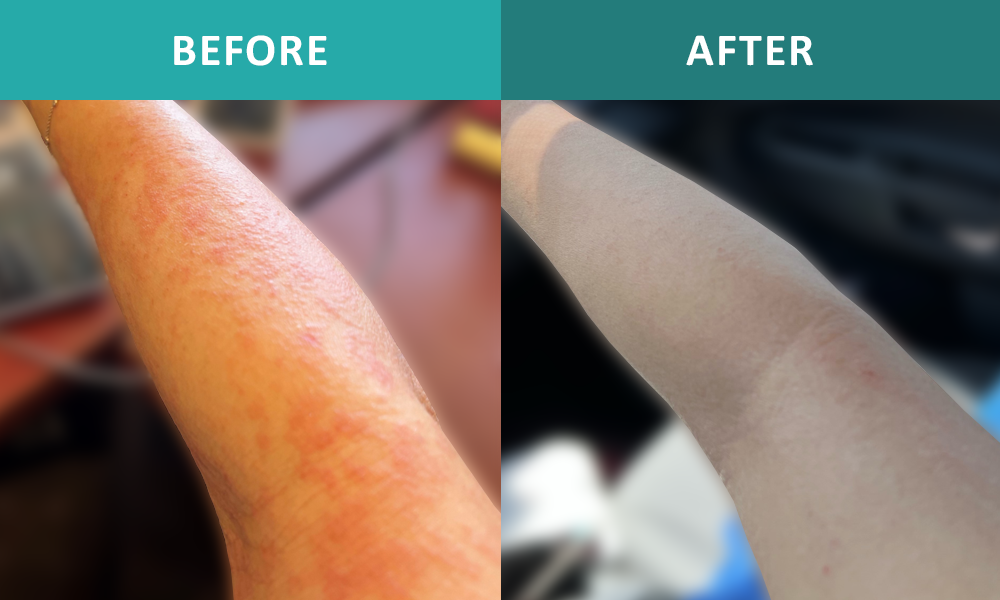
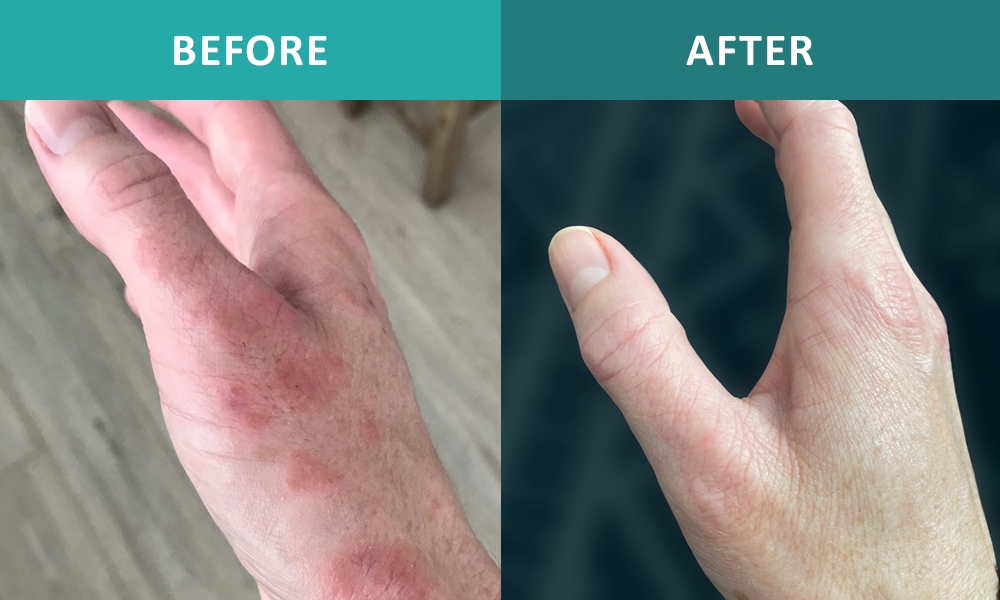
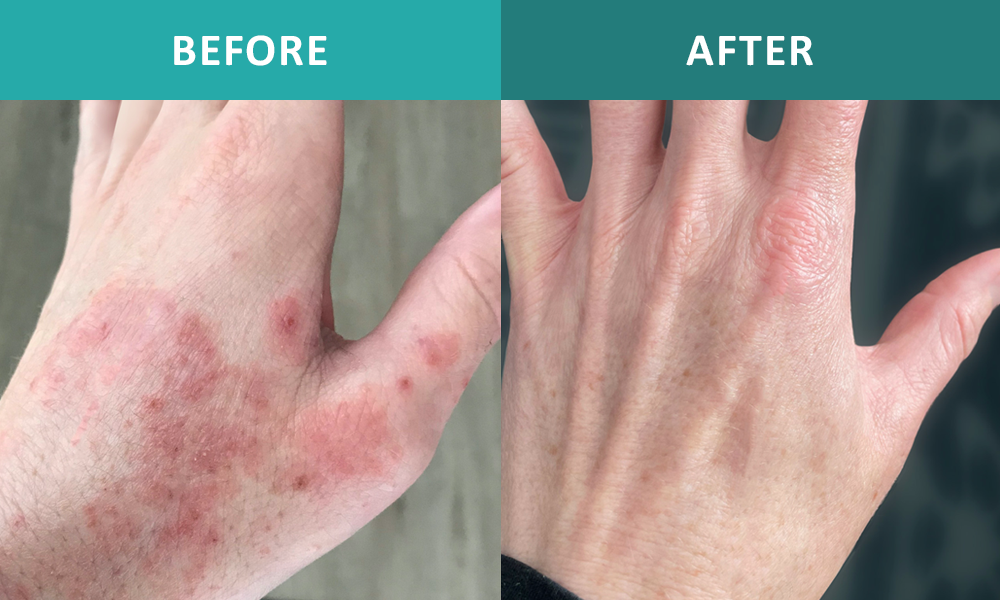
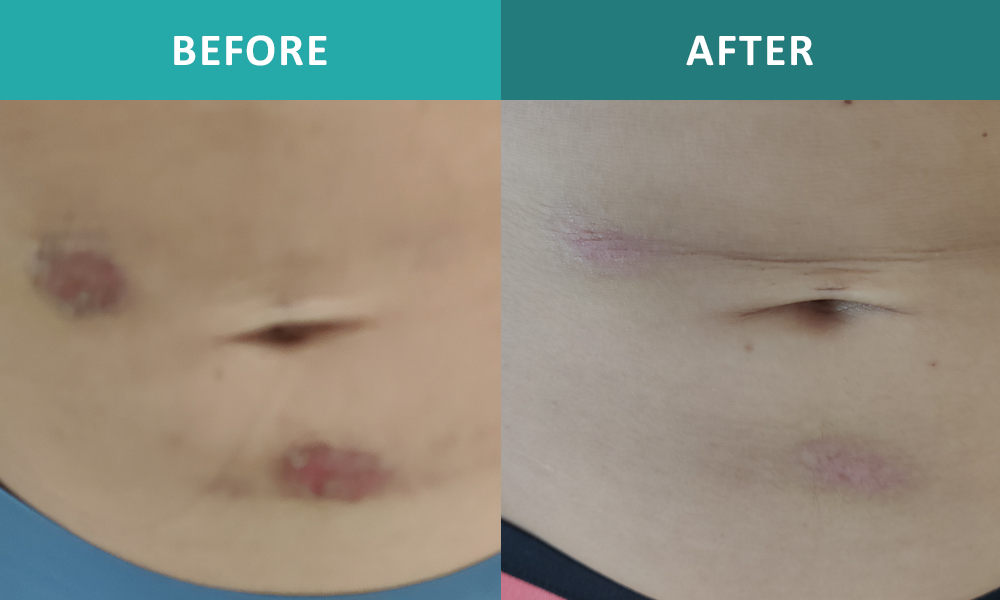
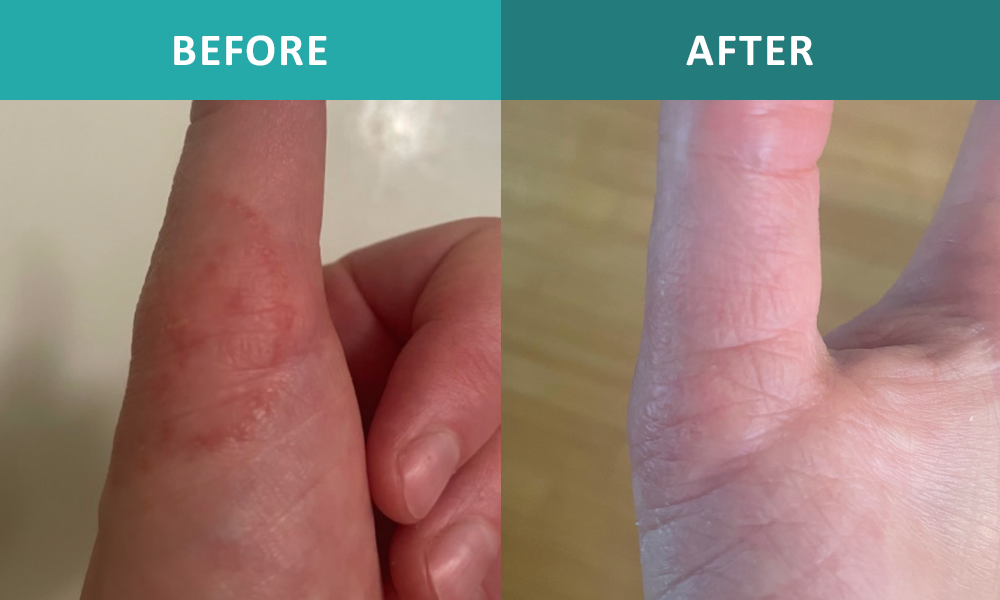
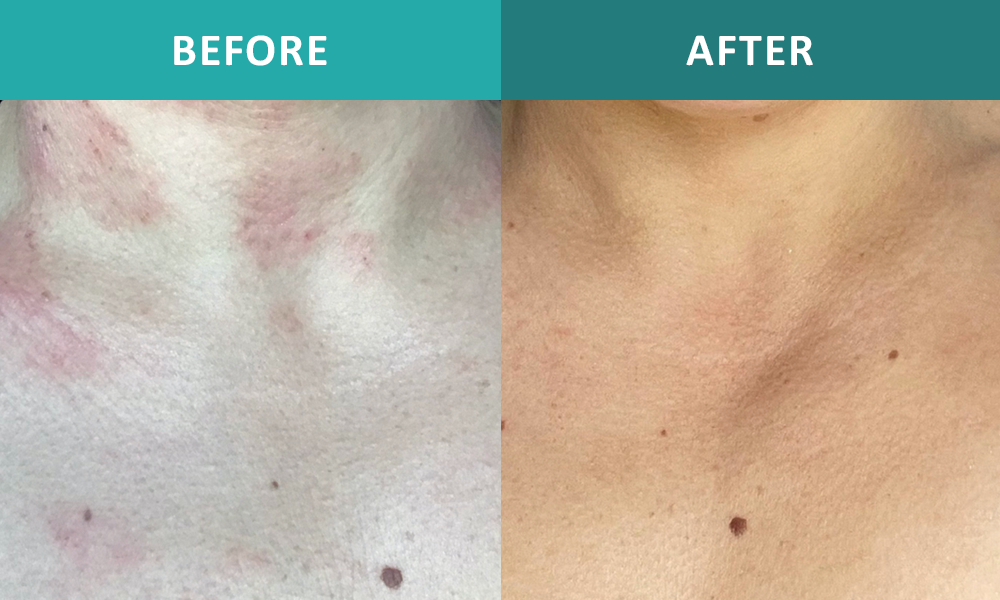
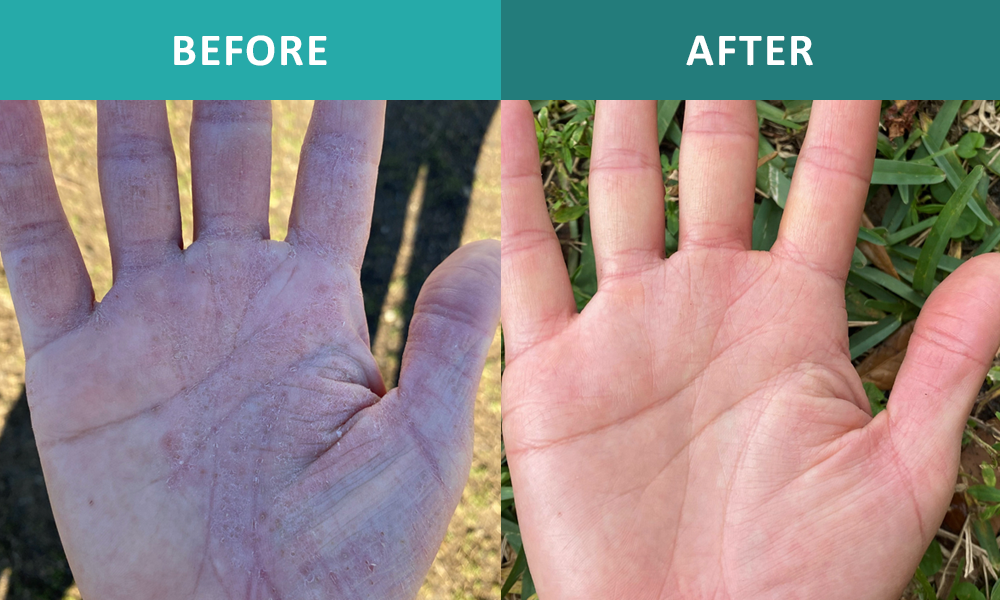
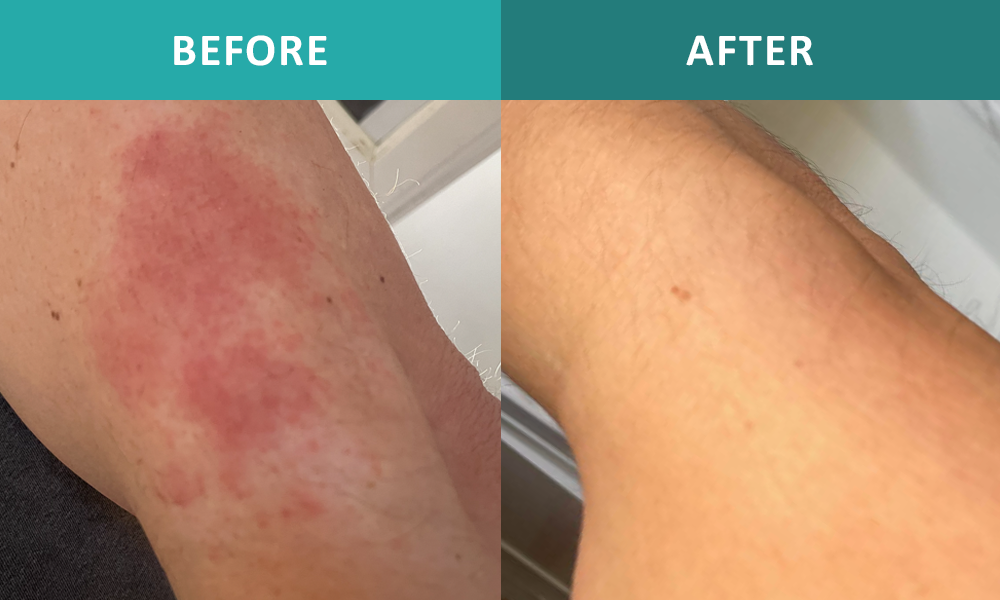
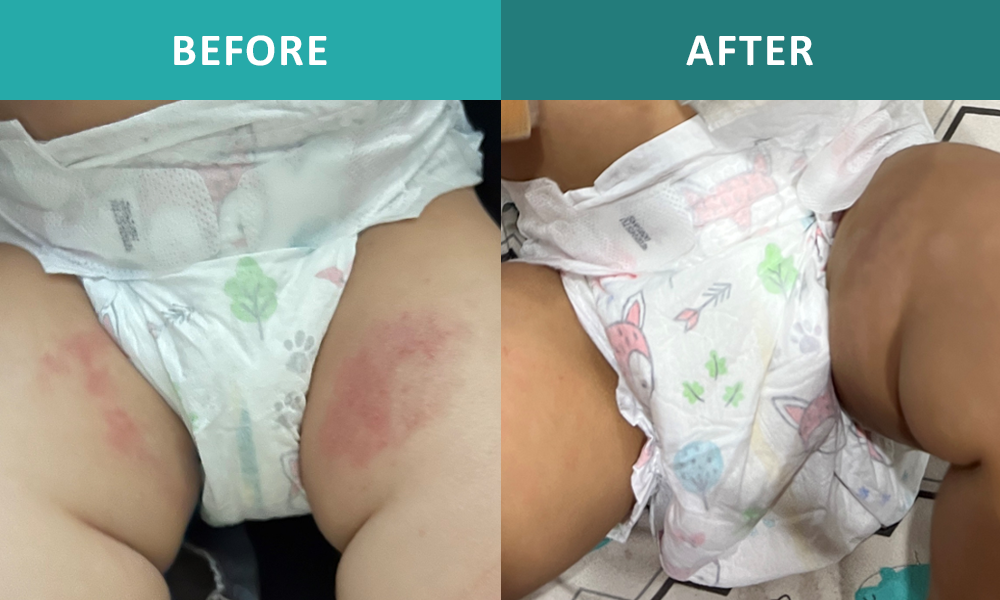
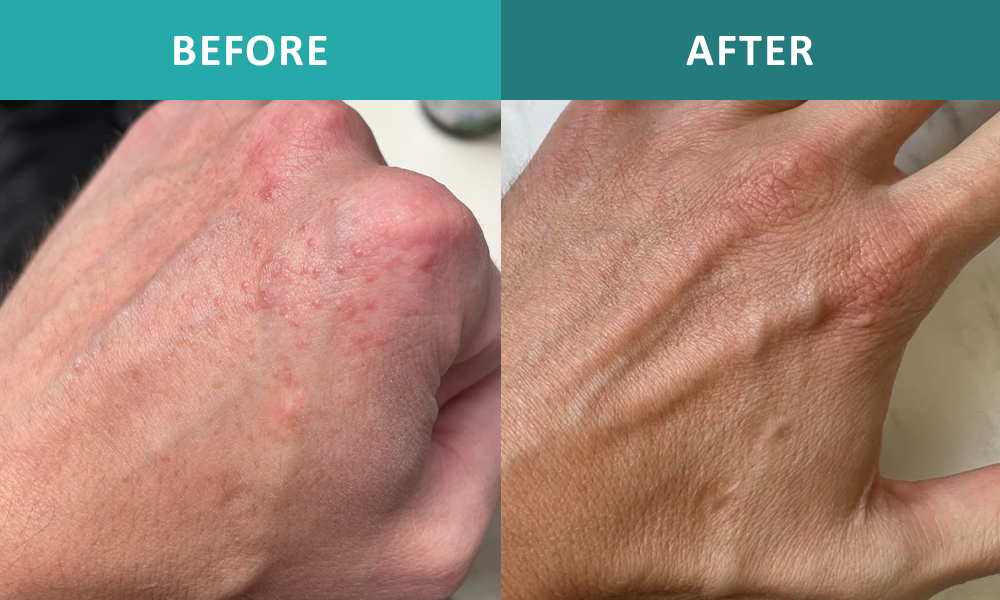
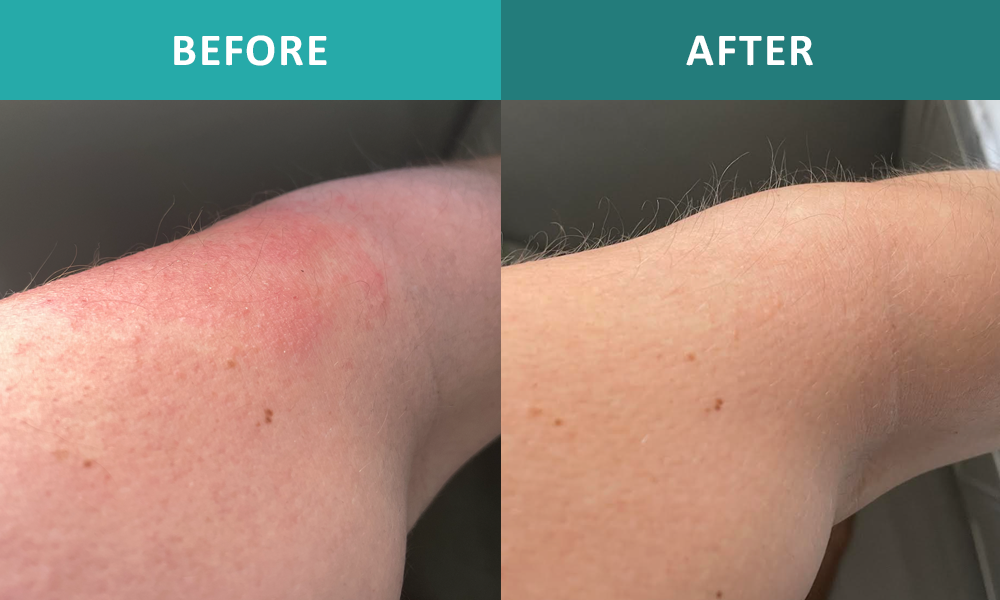
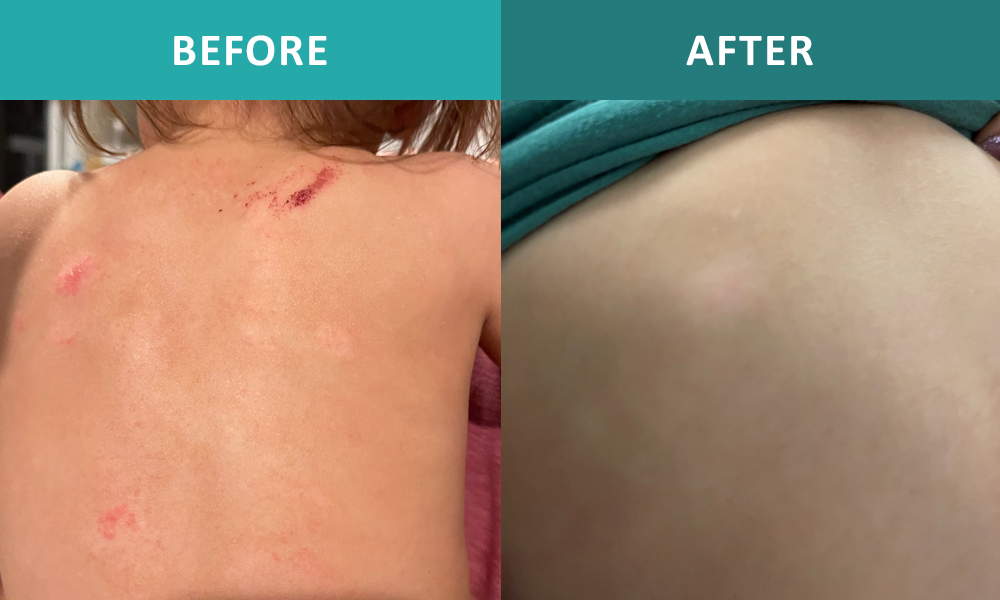
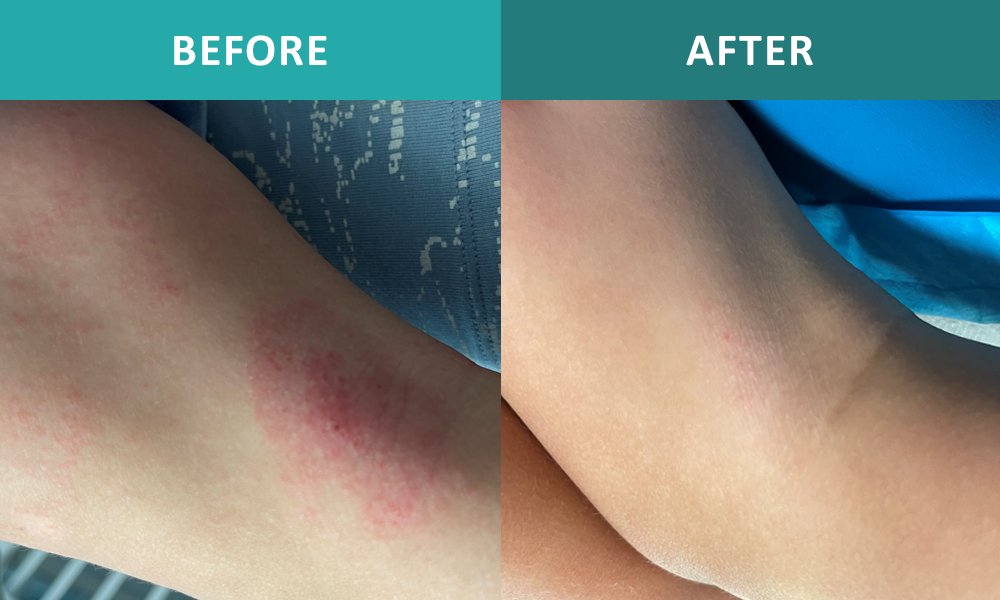
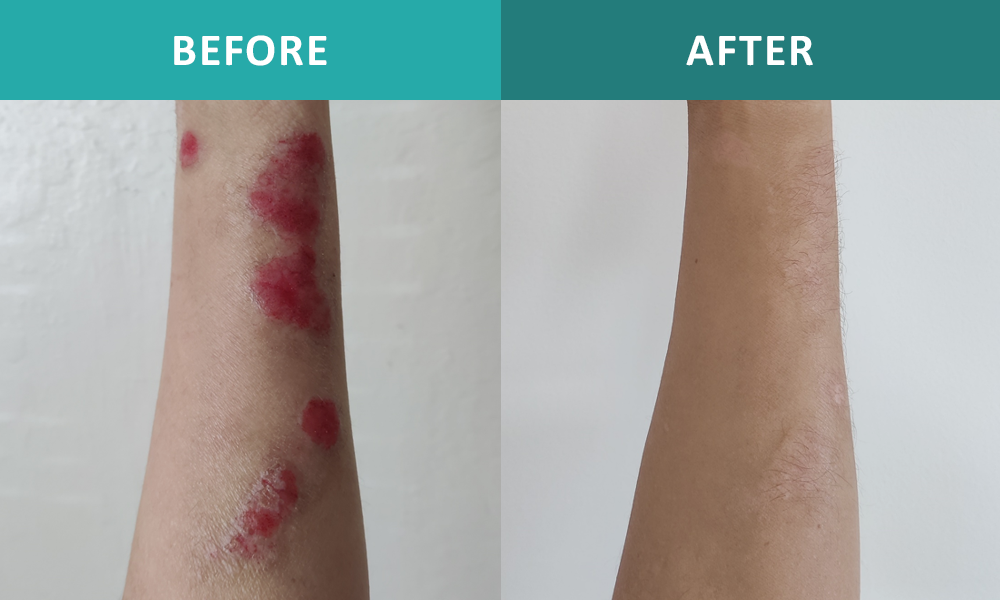
Check Out the Eczema Course!
Learn All About Eczema From Dr. Greenberg
Stay in the Know
Sign up for the newsletter to receive up-to-date information about how to keep acne at bay!
Eczema (or atopic dermatitis) can drive people mad with itch and disrupt sleep. Let’s talk about what causes eczema and how to get rid of it using alternative treatments for eczema.
- Why do babies get eczema on their cheeks?
Natural Moisturizing Factors (NMFs) are natural products we make in our skin to keep it well-hydrated and protected.
Infants are low in Natural Moisturizing Factors at birth and start developing NMFs at different rates in different parts of their bodies.
The cheeks are one of the last places where an infant develops NMFs, which leave them unprotected and can make them vulnerable to developing eczema.
Food and saliva sitting on an infant’s unprotected cheeks can make eczema worse.
- Why do kids and adults get eczema behind the knees and in the bend of the arms?
A bacteria called Staphylococcus aureus is normally found on healthy skin in small amounts behind the knees and in the crook of the arms.
But when S. aureus colonies get out of control and increase in numbers, it has been correlated to onset of eczema.
So a dysfunctional skin microbiome and bacterial overgrowth is related to where eczema outbreaks occur in adults.
- How common is eczema?
1 in 10 people will develop eczema during their lifetime
Up to 25% of children and 2-3% of adults suffer from eczema
- When does eczema usually start?
60% of people will get it before the age of 1 and 90% will develop it before the age of 5
But eczema can begin during puberty or adulthood
- Poor sleep for those with eczema
90% of people with eczema have at least 1 disrupted night of sleep
- Atopic triad: eczema, allergies & asthma
Eczema, allergies, and asthma: these three conditions are called the “atopic triad” and people with one condition are more prone to having the others.
People usually start out with eczema, and develop allergies and/or asthma later.
We now think that a “leaky skin barrier” in eczema allows tiny particles of foreign matter (like food proteins) to enter the skin which leads to immune dysfunction and the development of allergies.
- Eczema is not one disease
Different groups of people have different immune responses related to their eczema depending on their age and ethnicity.
This may explain why some therapies work on certain people and not others.
What Causes Eczema?
While we still have a lot to learn about what causes eczema, there is a lot that we already know:
01. Genetics
Eczema does have a genetic component as it appears more often in people with family members that have it.
Atopic triad- (eczema, allergies, and asthma). Eczema occurs more often in people with a personal or family history of allergies and asthma.
02. Filaggrin
Filaggrin is a protein in the skin that is the master controller of maintaining a healthy skin barrier.
Natural moisturizing factors (NMFs) are made from filaggrin and are also an important part of maintaining healthy skin. Without enough filaggrin, there aren’t enough NMFs.
Filaggrin is decreased in people with eczema. Skin becomes cracked and dry and foreign things like bacteria and irritants can enter our skin.
03.Skin Microbiome
The skin has its own unique microbiome to keep it healthy, just like our digestive tract does.
When the skin's microbiome becomes dysfunctional, certain bacteria that are normally kept under control, like Staph aureus, can over colonize the skin and cause eczema.
04. Leaky gut
We are essentially one big tube, with skin on the outside and intestinal mucosal lining on the inside. These two tubes meet at the lips and are related to each other on a cellular level.
In addition to the external skin barrier being compromised in eczema, there is evidence that the intestinal barrier may also be compromised.
A permeable intestine, or “leaky gut”, allows foreign material (like bacteria, viruses, or food proteins) to pass through your gut and enter your blood stream instead of passing unnoticed through your GI tract and excreted via urine or feces.
What Aggravates Eczema?
Dry skin
Frequent washing with soap
Lack of moisturization
Stress
Dry, cold climates
Infections
Allergens
Irritants
How Can We Get Rid of Eczema Using Natural Treatments?
We target eczema from the inside out and outside in by using natural treatments for eczema that include both topicals and internal treatments.
We work with you, the patient, to determine which alternative treatment options fit best with your life and your values. There is no “one-size-fits-all” treatment plan: it will be tailored to your specific needs.
Examples include:
Diet
We educate you on how your specific diet may be driving your eczema (like food sensitivities), and work on healthy eating and making smart choices where possible to reduce the drivers of acne.

Topicals
We use natural botanical products to help strengthen the integrity of the skin barrier, to soothe the itch, and to heal the inflammation..

Supplements
There are many supplements which can help address the underlying causes of eczema such as filaggrin deficiency, dry skin, and leaky gut.
Supplement treatment plans are customized to the individual.

Lifestyle
We will look at lifestyle factors like which personal care products you are using on your skin and how often to determine which factors could be contributing to your eczema.
We will look at your stress levels, sleep, and exercise to determine what changes could you help calm your eczema.
Interested in learning more about treatING Eczema NATURALLY ?
Contact us or set up a free 15 minute consultation with Dr. Greenberg to talk about your specific needs.
Contact Us
Los Angeles, CA 90024









